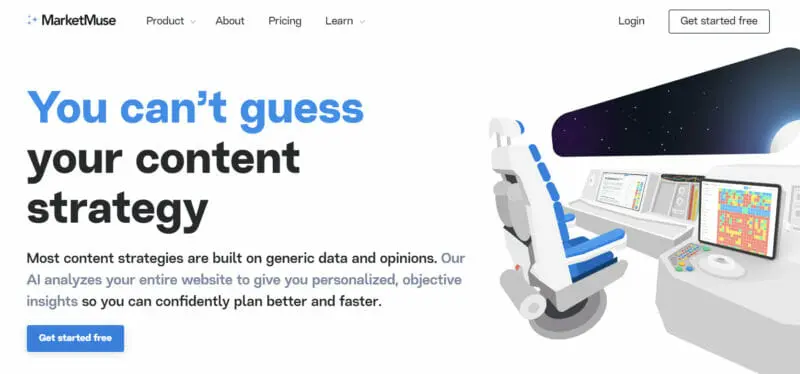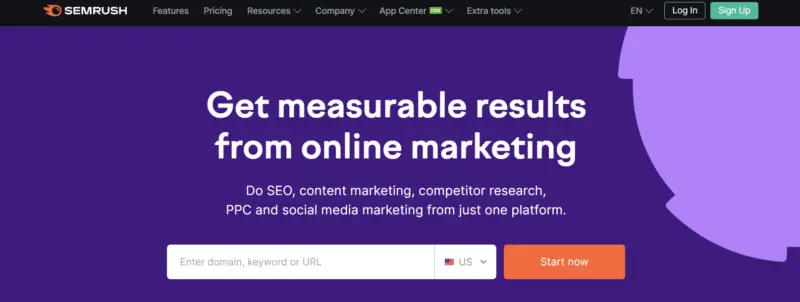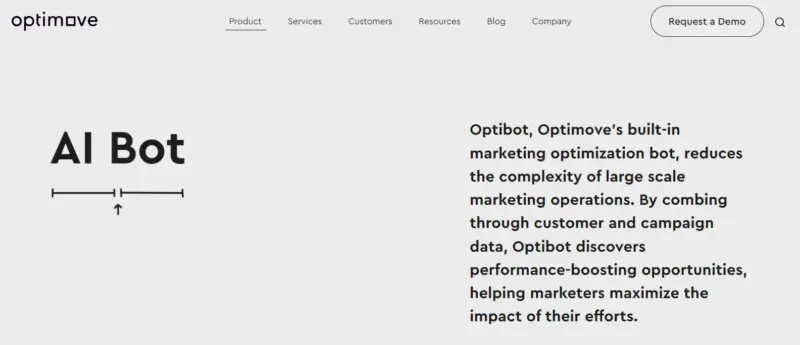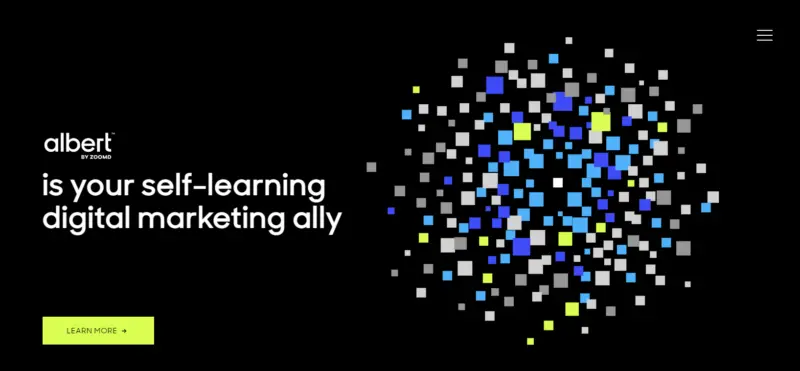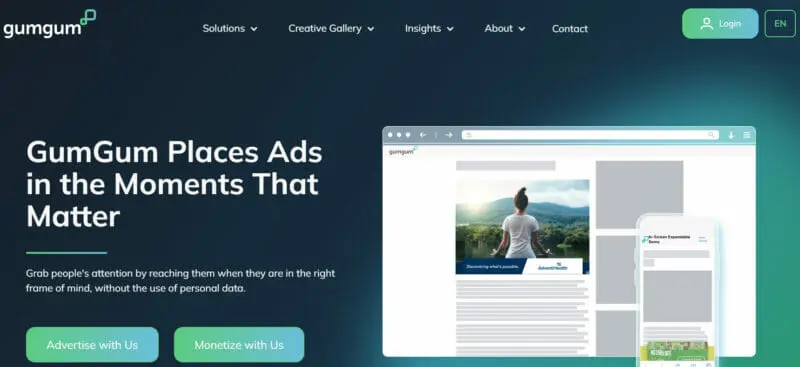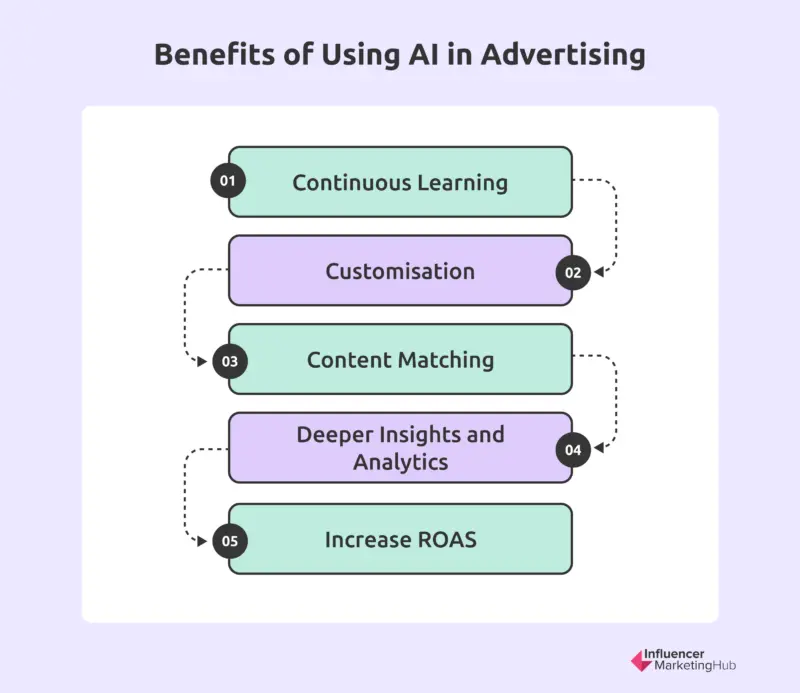Digital ads are fast becoming the go-to advertising model today. With millions of people owning digital devices, it’s no wonder that digital advertising is king. Estimates predictions indicate almost 6 billion people worldwide own a smartphone. Moreover, people are spending upwards of seven hours per day on their smartphones, browsing social media, watching YouTube videos, or doing something else entirely.
With that said, the US is the largest programmatic ad market in the world. In fact, they estimate that programmatic ad spending in the country might surpass the $200-billion mark this year. Mobile was a frontrunner in terms of programmatic ad mediums, with more than 60% of those surveyed indicating that they allocated at least half of their programmatic ad budget for mobile campaigns.
These statistics represent a wealth of potential for advertisers to maximize their ad spend on digital media. Fortunately, programmatic advertising has made the process quicker and more seamless.
Top AI Programmatic Advertising Tools:
If you want to stand out from among your competitors, you should also consider your content advertising strategy. MarketMuse specializes in content generation that converts. It not only performs content audits, but it also analyzes your competitors’ topics and content and checks to see what they have missed. AI is at the heart of everything that MarketMuse does. Its software provides you with useful data that informs you of what types of content and ad copy would convert. The downside to MarketMuse is that after the free package, the next level is a bit costly. If the limitations of the free plan pose a problem for you, you’ll have to shell out a bit of money to get the Standard plan to unlock more features. Pricing: There are three packages—Free, Standard ($600/month), and Premium ($12,000/year). An all-in-one tool, Semrush uses AI to provide you with a full suite of digital marketing services. From keyword ranking to advertising to SEO, Semrush has over 40 tools to help make marketing easier. Its competitor analysis is one of the best, and you can do deep keyword research to discover how your keywords fare on online searches compared to your competitors’. But because of a vast array of tools available, it might be a bit difficult to start, but the good thing about a platform that offers virtually everything is that you can do all your marketing work on one dashboard. Plus, one of the common reviews on Semrush is that it is relatively inexpensive for something that offers a lot. Pricing: You can head on over to its website for all the different plans and prices it has. In 2016, customer data platform company Optimove developed Optibot, the first AI-powered marketing optimization bot. Optibot scans your campaigns and draws out relevant data and actionable insights. You can then use the information to identify improvement points in your ad strategy, including ad copy, content, and even customer targeting. True to its name, the Optibot will help you optimize your marketing and advertising campaigns, so your ad dollars are not wasted. Optimove has a self-optimizing campaign that automatically delivers the best content to each customer. Over time, the algorithm monitors competing actions, then adjusts accordingly so that customers get ads that they will most likely engage with and respond to. Pricing: No fixed plans. Contact Optimove for a price quote suited to your needs. Albert is one of the top-ranked AI platforms today. Covering “90% of the biddable universe,” Albert is an AI-powered tool that plugs in a company’s existing digital marketing efforts—paid search, social, and programmatic advertising. It does everything machines do best. It can help you plan your ad variations, build ad groups and audiences, optimize your budget and your bids, and do a deep dive into reports and insights. It’s an all-around AI ally that advertisers can use to make life easier. Albert’s software is self-learning, a hallmark of artificial intelligence. It’s a pretty powerful tool that can take action by itself—an autonomous AI for digital marketing that is able to act on the vast amount of data it collects and processes. It is also able to churn out in-depth data analyses, so you can run optimized campaigns and increase your ROAS. Pricing: Contact the company for its pricing plans. Formerly known as Centro, Basis Technologies leverages the power of AI and machine learning to optimize your campaigns and bids on programmatic advertising. It uses predictive modeling to target the right audiences for your ads at the right time and on the right websites. Basis aims to automate digital media operations, including programmatic, search, social, and publisher-direct. Pricing: Head over to its website for a custom quote. The goal of GumGum is matching the right content with the right people using AI to drive sales. Its trademarked platform, Verity, is a contextual intelligence technology that analyzes content, so your ads show up only at relevant, appropriate places. The Media Rating Council (MRC) gave content-level accreditation to Verity for contextual analysis, brand safety, and suitability, making GumGum the first independent ad tech provider with this distinction. Pricing: As with the rest of the providers on our list, you’ll need to contact the company to request a quote.1. MarketMuse
2. SEMrush
3. Optimove
4. Albert
5. Basis Technologies
6. GumGum
What Is AI in Programmatic Advertising?
Programmatic advertising is the use of automated technology to buy and sell digital advertising space. Mostly done through real-time auctions where advertisers bid for the most competitive ad spaces, programmatic advertising is more efficient than other forms because the process is streamlined. It is good for advertisers, publishers, and consumers because the whole media buying process is quick, and consumers see fewer irrelevant ads. It saves the industry thousands of dollars and hours to automate.
Many of the platforms that facilitate programmatic advertising use artificial intelligence (AI) to make the process smoother. Advertisers will be able to maximize their ad spend by leveraging AI in programmatic advertising. AI takes programmatic advertising to the next level by processing content and customer data for the best results.
According to our AI Marketing Benchmark Report, ads created with TikTok's Symphony AI have seen a 37% boost in purchase intent, showing just how potent AI can be in programmatic advertising.
The Role of AI in Programmatic Advertising
Using AI in marketing and advertising is not a new idea, but few people realize the extent to which it can be utilized for maximum impact. A lot of programmatic advertising is real-time bidding, so the capability of AI to make quick decisions based on relevant data is a big benefit to advertisers.
AI can help you target customers using categories other than geographical location, age, or gender. It can, for instance, help you track down people who have searched for relevant keywords on Google, or people who have engaged with your competitors or similar brands. This pretty much guarantees that your ads will show up on the screens of people who are actively looking for them or have shown a recent interest in them.
AI can also gather important data, so you can create custom customer segments. This will, in turn, allow you to analyze your markets and check whether your marketing and advertising strategies are targeting the right people. A deeper knowledge of your customer segments will lead to a higher ROI and ROAS.
However, using AI and an automated programmatic advertising system does not ensure successful ad campaigns. Like everything else, you still need to do research and put in the grunt work before AI can take over. For example, AI can’t set your marketing goals for you, nor can it identify the KPIs your company needs to achieve.
Benefits of AI in Programmatic Advertising
AI in programmatic advertising offers many benefits to advertisers. Programmatic advertising itself is already a big convenience—no longer do negotiations between advertisers and publishers drag on. Everything happens almost instantaneously, with the added bonus of targeted advertising. AI amplifies the advantages of programmatic advertising by providing the following benefits.
Continuous Learning
By using machine learning, AI can take large volumes of data about different customers and adapt to create new segments, modify existing segments, or otherwise improve your customer segmentation. The more data that it gets, the more it learns and results become more accurate. In short, it’s continuously learning from the new data sets that it obtains and improving its analytics each time.
Customization
As AI processes data and learns more about which ads convert the most and to which type of audiences, it can automatically adjust content for individual users. AI analyzes the history of the user and what types of content they typically engage with, and provides them with a relevant ad creative that is consistent with that history.
Content Matching
AI can also match ad content with website content. Achieved through natural language processing (NLP), a component of AI much like machine learning, this is one way of preserving brand image and reputation. As NLP analyzes a website’s content, it also decides if the ad content is relevant enough to display on that site. This prevents ad displays on dubious websites that can be potentially harmful to brands.
Content matching is helpful if a majority of a website’s visitors match your target demographic, but the website itself is not relevant to your brand.
Deeper Insights and Analytics
The insights that advertisers can gain through AI are more meaningful than non-AI analytics. Aside from the basic geographic and demographic information about customers, AI can also find out their previous purchases, installed apps, how they interacted with related ads, browsing history, and even how similar they are to your own high-value customers.
These deeper insights and analytics will allow you to get a better sense of who your customers are, what they normally look for, and what types of ads they engage with. It will help you create or modify your marketing and advertising strategy in a more effective way.
Increase ROAS
Using the customer information that AI gleans, you can then adjust your budget and bidding strategy for efficiency. Combining the AI-powered benefits of audience targeting, ad content personalization, and content matching, we see that it’s possible to increase your ROAS by allocating your ad dollars more cost-effectively.
The Future of Digital Advertising: Will AI Replace Advertisers?
The fear of machines replacing human jobs has always troubled workers. It’s understandable—machines do a far more efficient job at some tasks and at a faster rate. However, despite the capacity of AI to process large amounts of data, a human touch is still irreplaceable in marketing and advertising. The industry entails human elements such as compassion, empathy, and storytelling. In short, it requires human emotions, which are dynamic and have a degree of unpredictability that AI has yet to understand.
AI runs numbers and makes decisions based on logic and reason—the human mind, as we know, is not always like that. We still need real people to analyze what machines give us, and to consider the nuances that come with dealing with the colorful spectrum of human emotions.
Mundane, repetitive tasks that don’t require higher thinking are usually delegated to AI. Strategy and creativity are still beyond AI in advertising. And if the machines do all the tedious work, then it frees up the advertiser and marketer’s expertise and time for strategic and creative thinking. If anything, AI would only strengthen and augment the work of advertisers and marketers, making them more valuable.
The future of digital advertising is exciting. Artificial intelligence, machine learning, natural language processing—all these things only serve to assist us human beings in our jobs. Some tasks may completely be taken over by bots and machines, but there are still jobs that require a human brain. Hopefully, we are heading toward a good future where AI and people collaborate and work well together.
Frequently Asked Questions
What is AI in programmatic advertising?
AI in programmatic advertising refers to the use of artificial intelligence and machine learning to automate and optimize digital ad buying and selling. It helps advertisers maximize their ad spend by processing data to make quick, informed decisions.
What are the benefits of using AI in programmatic advertising?
Key benefits include continuous learning from data to improve targeting, customization of ad content for individual users, matching ad content with website content, and providing deeper insights and analytics to enhance ROI.
Which are some of the top AI programmatic advertising tools?
Some leading tools mentioned include MarketMuse, SEMrush, Optimove, Albert, Basis Technologies, and GumGum. These platforms leverage AI to streamline the programmatic advertising process.
How does Albert AI work in programmatic advertising?
Albert is an AI platform that covers 90% of the programmatic ecosystem. It autonomously executes marketing operations, analyzes real-time data, and optimizes campaigns to maximize ROI.
What role does AI play in programmatic ad targeting?
AI enables hyper-targeted advertising by processing large volumes of data to identify patterns and insights. It can target users based on interests, behaviors, and intent signals beyond just demographics.
How does AI help with ad content customization in programmatic?
By analyzing user history and engagement patterns, AI can automatically adjust ad creatives to deliver the most relevant content to each individual, improving the chances of conversion.
What is the relationship between AI and real-time bidding in programmatic?
AI's ability to process data and make decisions quickly is a major advantage for real-time bidding. It allows advertisers to bid on and serve the most optimal ads in milliseconds.

